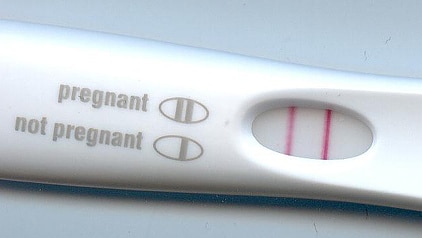Victorian crossbench MP Fiona Patten is looking to compel taxpayer-funded religious hospitals to provide abortions, contraceptive treatment and end-of-life options.
Key points:
- Reason Party leader Fiona Patten says imposing faith in hospitals results in women being denied the health services they need
- The state government says Victoria already has the most progressive laws in Australia
- Catholic hospital Mercy Health says it values the dignity of life from conception to death
The Reason Party leader will introduce a bill into state parliament this week that would remove the right of hospitals that receive any taxpayer funding to refuse to offer reproductive health services and voluntary assisted dying due to “corporate conscientious objection.”
Ms Patten said imposed religious faith had no place in the public health system.
“Right now, women in Victoria face a whole range of barriers to accessing reproductive health such as abortions or even contraception, some of that geographically,” she said.
“But also it’s because a number of our publicly funded hospitals refuse to provide these services and we say that if you’re publicly funded, then you should provide the services that the public need.”
Ms Patten argued conscientious objection resulted in women being mistreated by the health system that they help fund.
She singled out Mercy Health as an example of a religious provider that did not offer some services.
“The Mercy Hospital, which is one of the largest obstetric hospitals in Victoria, it is a publicly funded hospital,” she said.
“They refuse to provide contraception, they refuse to provide abortions when patients need them and this is just not right.”
Private hospitals that did not receive any public funding would not be affected if the bill was adopted, nor would individual practitioners.
Ms Patten said the bill aimed to ensure that abortions remained legal, available and safe in Victoria, and noted the controversial overturning of the Roe v Wade decision by the United States Supreme Court.
“We’ve all just seen what has happened in America and we need to ensure that women’s rights to abortion and to contraception and other reproductive health is enshrined and protected in this state,” she said.
“There is no reason to think that there won’t be pushes in Australia and in Victoria to change our abortion laws here.”
The Victorian Health Minister Mary-Anne Thomas declined to say whether the state government would support the bill.
“The Victorian government already has the most progressive laws in the nation when it comes to supporting women exercising their reproductive rights,” Ms Thomas said.
“As health minister, I will always champion the rights of women to access the sexual and reproductive health services that they need right across our state.”
Catholic hospital says ‘moral reasons’ behind abortion refusal
Mercy Health declined to be interviewed, but referred the ABC to statements on its website.
It said that as a Catholic provider, it valued the dignity of life from conception to death.
“There are two areas where, for moral reasons, we do not provide some services: being women’s health and end of life care,” the website stated.
It said its refusal to provide abortion and assisted dying services was “in accordance with the Hippocratic tradition of medicine.”
“We aim to do no harm, to relieve pain, to provide compassionate care for the whole person and to never abandon those in our care.”
Catholic Health Australia told the ABC it could not comment because it was yet to see the details of the bill.
Advocates say religious hospitals are denying a basic human right
Women’s Health Victoria is a statewide advocacy service that also offers online and telephone sexual and reproductive services.
CEO Dianne Hill said access to abortion was a fundamental part of comprehensive healthcare and women needed to trust that hospitals would care for all of their sexual and reproductive healthcare needs.
She said Women’s Health Victoria supported any legislative reform that improved access to abortion and contraception.
“Abortion and contraception access is compromised for women and people with a uterus due to systemic and structural inequalities including financial insecurity, geographic location, health issues, cultural safety and health literacy,” she said.
“Barriers created by healthcare services — where they may have provided a person’s maternity care but won’t provide contraception or abortion services — further exacerbate these issues, reduce choices and deny people’s reproductive rights.”
.
